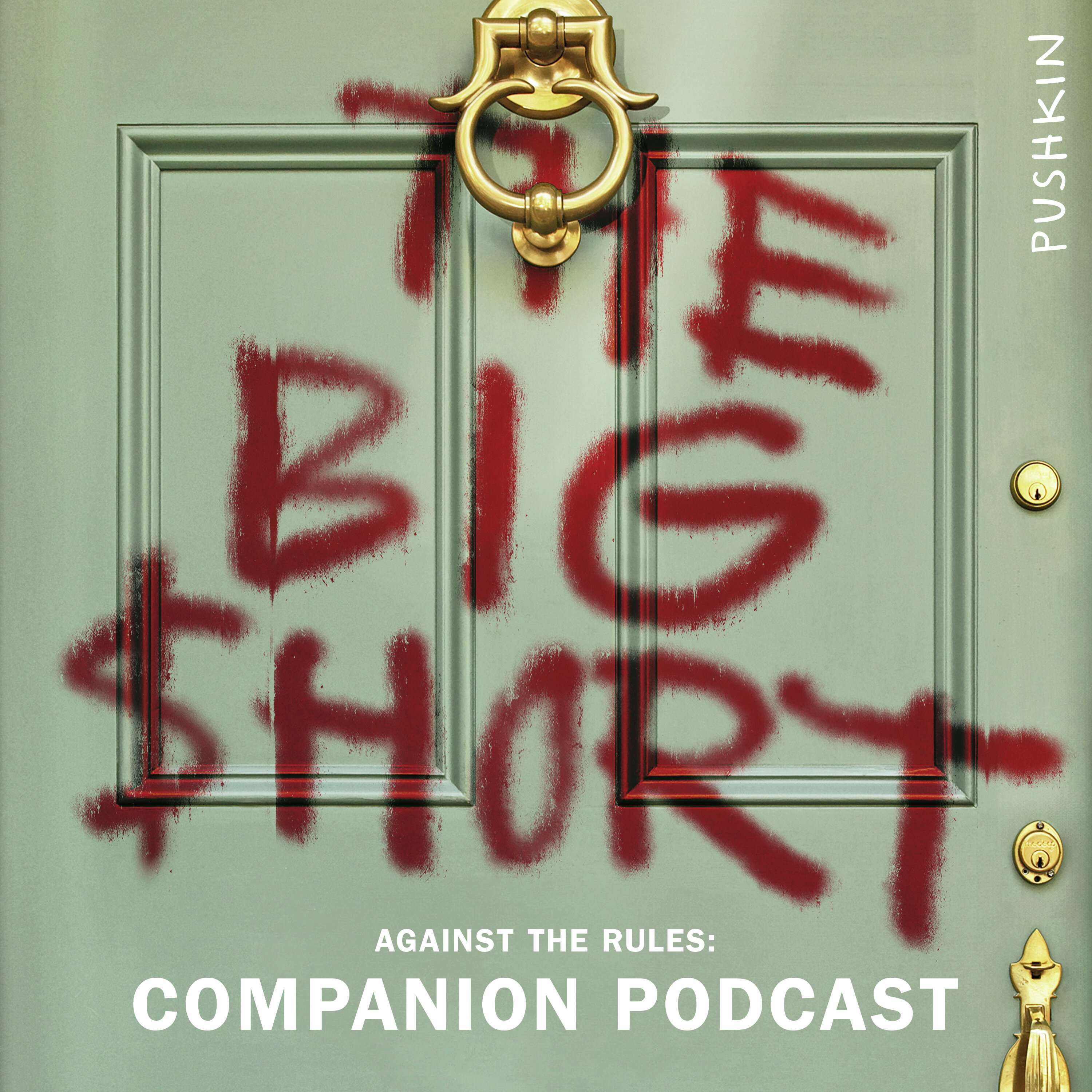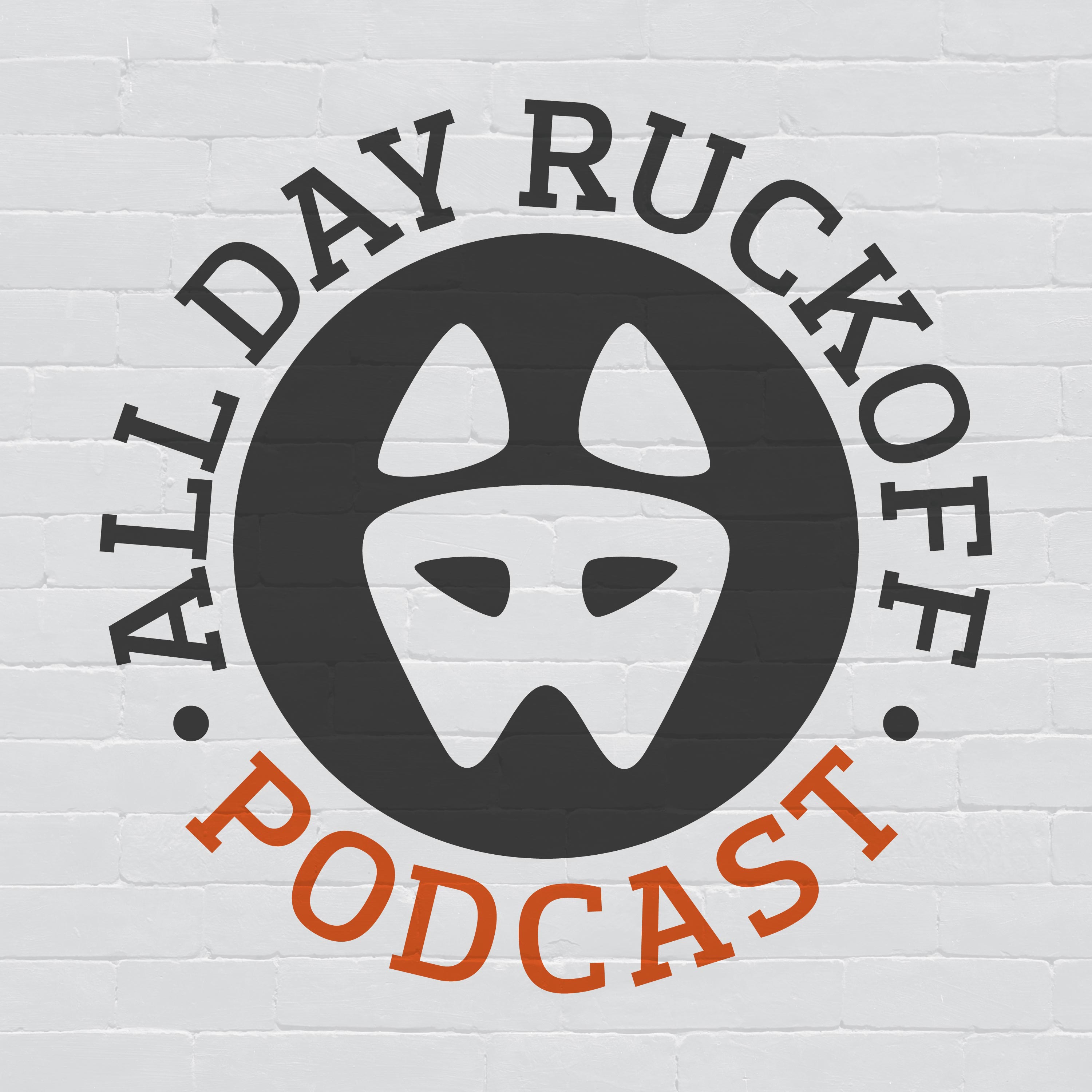
Survive Everyday
The Survive Everyday Podcast explores the stories and systems that shape our lives, focusing on resilience, inequality, and change. Through candid conversations with individuals, policymakers, and experts, we uncover the hidden barriers that keep people struggling and discuss solutions to dismantle them. Our mission is simple: to spark understanding, challenge the status quo, and inspire action toward a fairer, more equitable world.
Survive Everyday
From Poverty to Policy Change
Growing up in a working-poor family, State Representative Joe Miller (OH-53) brings a gritty, firsthand perspective to the table that challenges the status quo. Our discussion weaves through Joe's life experiences and combines them with insights from Matthew Desmond’s "Poverty by America" to expose the harsh realities of poverty and the systems that cement it. Together, we question the efficacy of political campaign spending and school voucher programs, and how they might unintentionally deepen the chasms of inequality they aim to bridge.
The conversation pivots to the overpowering economic influence in politics, unpacking the staggering sums funneled into political advertising and the media's role in shaping public opinion. We reflect on how the middle class, once the backbone of democracy, has been increasingly sidelined by a wealth gap that grows ever wider. The notion that addressing this wealth gap is a provocative one, challenging the priorities of today’s billionaires as well as the affluent, and their potential impact on democracy.
Our dialogue culminates in a critical examination of education funding and the role of billionaires in government. As an educator, Joe shares poignant stories of hungry students whose potential is stifled not by ability, but by basic unmet needs. We critique the school voucher system's unintended consequences of increasing segregation and undermining public education.
Finally, we underscore the urgency of separating wealth from government to preserve the democratic ideals upon which our society is built. Engage with us on social media and YouTube as we explore these complex intersections of poverty, politics, and education.
Nashville Public Education Foundation Study
Federal Elections Commission Data
WOSU Story on Ohio School Voucher Study
Get the Book, Povery, by America excerpt from Chapter 9 Tear Down The Walls pages 161-165
Survive Everyday on Bluesky
Adam on TikTok
Welcome back to the Survive Everyday podcast. In our special series, spark of Change, we're diving deep into a really important issue poverty. I'm your Adam Gercak. In our past episodes we've talked about how big companies, while trying to make a profit, can sometimes keep people stuck in poverty. They create systems that make it hard for people to escape difficult situations. It's a complicated system we're all a part of, but understanding how it works is the first step towards making things better.
Adam:After talking to my friend Jerry, I decided to reach out to some of the people who actually make the decisions our elected officials. State Representative Joe Miller, who represents my district, ohio 53, was the first to respond. We had a really interesting phone call. He was honest with me and he admitted that he wasn't an expert on poverty issues, and I appreciated his honesty because I was more interested in hearing his own thoughts and experiences than a poverty issue. We later met at the library for a much larger conversation. We covered so much ground that it's impossible to fit it into one episode.
Adam:Today we're going to connect two things that seem like they should help but might actually have some unintended consequences. Huge spending on political campaigns. People think that spending tons of money on ads will get more people to vote, but who really benefits from all that spending? And school voucher programs these programs give public money to private schools. Some people believe that this will give all kids a better education, but does it really? Or does it just take the money away from our public schools and give it to private schools, which might make the problem worse? Joe may not be an expert on poverty policy, but he's definitely lived through some of the challenges we're discussing. His experiences have helped us understand how wealth, power and opportunity really work in our society, and I think a great starting point for our discussion is understanding Joe's background and how it shapes his worldview.
Rep Joe Miller:So I started well, I started college, if you want to call it that, as I was working a couple jobs coming out of high school. I was either going to go in the military or go work at Ford or Norton or a factory. We were a family of kind of like working poor, trying to work your way out of poor Family of seven, five kids, kind of a mixed marriage, and so my dad took my mom's two older kids and then had three more. I'm being the middle of those three more.
Adam:Oh, so we're both middle children, yeah.
Rep Joe Miller:And he started this young and in his 20s, during the 70s, when the economy was not that great. It was, uh, tumultuous, we had high inflation at the end. It was a lot going on in the 70s. So, uh, he would factory, lay him off, then he'd go back and you know that kind of thing. And it wasn't until he got into a supervisor role and my mom kids were old enough my sister was old enough for us four boy, older boys to watch her that she went off and and stopped and stopped just cutting hair to make some side money. With her license beautician license at that time it was called she went off to work for a doctor in an office and you start working your way out of that working poor. So it was nice. You're no longer having puffed rice and powdered milk for breakfast or free and reduced lunches and you kind of felt like, hey. But I also saw my dad grind and so I felt that's what you need to do. And it is still true that you know grinding is rewarding and it helps you get where you want to go most often, unless things are stacked against you.
Rep Joe Miller:So I went to community college because I ended up not going in the service, not going to work for a factory. I already had like three jobs. I was enjoying teaching martial arts and doing a couple other things and after two years in the college in business, when I decided I wasn't going to open my own dojo, my parents helped me decide that they're like there's absolutely no way I'm going to invest in that with you. We don't have much money in the first place. So I left for Bowling Green State University and transferred to international business, got out there, missed working with kids and adults, ended up changing my major to education. Graduated with a bachelor's of science and a secondary education, came out, taught three years and two in Texas technically three in Texas.
Rep Joe Miller:but two of those years of the three in Texas were in a alternative school which was basically alternative to jail or juvenile. So I got to see a lot of the social impacts on kids learning and growing and maturing and developing and how that was very challenging. And I thought, you know, wow, I really had it rough. No, I didn't, I actually had it pretty good. I thought you know, wow, I really had it rough. No, I didn't, I actually had it pretty good. You know we may have wore grad sale clothes a lot of times and had, you know, not the best of food and froze. You know, went and got bread and froze in the freezer, kind of thing.
Adam:But there were people that were in the body or other areas. If you remember Matthew Desmond's book Poverty by America, he talks about the experiences Joe went through. Now it's important to understand that poverty isn't the same for everyone. When white people experience poverty, it's often different from what people of color experience. White people living in poverty usually don't live in neighborhoods where there's a lot of other poor people, so their experience of poverty might be a little different. Joe, even when he was a young college graduate, understood this. He faced challenges growing up, sure, but his struggles weren't exactly the same as the kids he taught at his alternative school. Eventually, joe got a job in management in the corporate world, but then 9-11 happened and that completely changed the course of his career again.
Rep Joe Miller:So I ended up in business anyway. And then 9-11 happened and that completely changed the course of his career again. So I ended up in business anyway and then 9-11 hit and decided it was time to either, you know, continuing working in management and business or go back to education. And I kind of left it up to God and said, hey, you know, at that time after 9-11, nobody was hiring and so I was in between jobs. It just happened. I thought it was a vacation. I thought, hey, this is great, I'm single, no kids. You know my rent's low. I got good money piled aside and I blew through it because of 9-11.
Rep Joe Miller:And we were talking earlier off there or on there or whatever, about unemployment. I was like, you know, that's unemployment for those who can't get the job, and I just didn't have a really good, mature understanding of how unemployment works. So I never went and got it and I just blew through everything I had until I got the next job. And it was funny, I left the decision up to God and got a call immediately after I did that from a school district in Lurien County and I was over in Cuyahoga County at the time, and so I came back home, came back home, taught at Firelands for about 17 and a half years, met my wife and a couple kids and things are great.
Rep Joe Miller:And so, while I was moving back home, my wife and I, after starting a little starter home in Vermillion, we all decided we wanted to move back closer to the family while raising kids and built my development. And, of course, there's always an issue. There's always an issue that comes about, and so there was a local issue that the city council wasn't handling. My neighbors were like hey, you teach government, you know government, you understand it. Would you go advocate on our behalf? What?
Rep Joe Miller:I recognize that I did have the knowledge behind it and a skill set there, and I enjoyed advocating for my neighbors, and so I became a city councilman right after that.
Adam:Joe later went on to run for statewide office the current office he holds now. While we were discussing why people sit out on elections, he talked about the harsh realities of getting elected to a larger statewide office.
Rep Joe Miller:I tell this story. It's embarrassing, it's sad and it's embarrassing that there's some truth to this. I remember there's one thing running for city council.
Rep Joe Miller:Like you know your name as you win it was city-wise 12,000 people, which is still a small town in Amherst and I'm trying to meet every door and talk to everybody.
Rep Joe Miller:It didn't matter, R D, independent, non-affiliated, did not matter. I wanted to meet with them, talk with them, and it's easier to do that. But when I ran for state office in the House of Representatives, you have 124,000 people. You have a larger area to cover. You're not going to be able to do that. You're not going to be able to hit every house. And so the one thing that I said to some of the people that came together on my team and were giving me feedback, I said hey, I do not have a large percentage of Hispanic and African-American members in my community and if I'm going to represent them, I need to get out there and hear from them and find out what their issues are and how we can make sure government's working for them, and find out what they're willing to do. And I remember one of the people there who had been around politics for a long time said what are you doing?
Rep Joe Miller:You only have so much time and resources. Why do you care about a group of people who don't vote Because they're not going to help? You get elected and you can't do anything in office. If you're not elected, you can't get there. So all the great things you want to do for them, or elected, and you can't do anything in office if you're not elected, you can't get there. So all the great things you want to do for them or others, you can't do. So you need to spend all your time and effort where the votes are coming from. And I was somewhat appalled by that because I was coming from the opposite direction. And a true story and an embarrassing story is I remember when I was running for city council, the first time I ran as an independent, and that's because I mean I'm a centrist dem but but I still believe in the democratic party.
Rep Joe Miller:Right now I'm still struggling with some of the the ideas and how they they view America, but in the end, this is an easy call for me to be a democrat, regardless of some of the changes. I ran as an independent because I got in late, after the primary petition deadline. But I got in and I wanted to make sure that I was going to do a really, really good job for my constituents and my neighbors and I wanted to make sure I was prepared so that I wouldn't waste their time or embarrass them or whatever. I was prepared so that I wouldn't waste their time or embarrass them or whatever. So I spent a lot of time learning the budget, what was going on in city council, how they ran their meetings, who was in all that part.
Rep Joe Miller:I spent time trying to get elected not near enough time. And guess what? Because I was an independent and because I didn't spend as much time trying to get elected, I just thought, well, I mean, I'm going to be the most knowledgeable person on the ticket. They should see that that doesn't happen. People are not engaged. They don't know. They don't know about that. They just want to know that you're going to go out there meet them listen to them, and then you're going to try to do your best in that position.
Adam:Okay, listen, money in politics is a huge deal. I talked about this with Joe and it really blew my mind. He told me just to get reelected to his state office, he had to raise a quarter of a million dollars. Can you imagine how much money you need to run for something like Congress? So who's actually giving all this money? You and me Not really Not enough to make a real difference. At least. It's mostly big corporations, super rich people and those powerful lobbying groups. The amount of money flowing into these campaigns is mind-boggling. So I asked Joe a simple question.
Rep Joe Miller:Is it?
Adam:far off for a regular person like myself, or like anybody else, to say if you've got a large corporate donor, you're beholden to them. Is that far off?
Rep Joe Miller:No, I think that's accurate. I think that that's not an uncommon thing, to be honest with you. I think it happens more than people believe, but I will say there are legislators on both sides of the aisle who say OK, thank you. Thank you for helping me get elected.
Adam:But know that I'm not always going to agree with you. Ok, so the last presidential election, over three billion dollars were raised and spent. That's insane. According to the Federal Election Commission, a huge chunk of that went towards ads. You know those commercials you see everywhere trying to convince you to vote for a certain candidate, often just mudslinging back and forth. Since candidates can't knock on every single door, they rely heavily on TV and radio and those stoop mailers. You get in the mail. But here's the problem All this political advertising drives up the cost of advertising in general. Small businesses can't compete with the massive campaign budgets. They get priced out of the market, making it harder for them to reach customers.
Adam:Before the 1980s, in the Reagan administration, things were different. The government had stricter rules about how many radio and TV stations a single company could own. This was to prevent a few big companies from controlling everything. Back then, stations were supposed to serve the public interest, meaning they had to provide a variety of programs and local. But then the rules changed and things got crazy. Big corporations started buying up tons of stations, squeezing out smaller ones. Competition disappeared and all the stations started to look and sound the same. Local news got cut and it became all about making money. Now, during election season, these huge media companies think iHeartRadio, disney, nbc, amazon they're raking in cash from political ads, Billions of dollars flowing straight into the pockets of these massive corporations run by billionaires. Remember those old independent radio stations, the ones that really cared about their community? They're mostly gone now, replaced by these giant companies, and it makes you wonder, doesn't it? How does all this power and money concentrated in the hands of a few actually affect our democracy?
Adam:Is a billionaire, an ethical person typically.
Rep Joe Miller:I don't want to speak to somebody's moral, ethical fiber. I think that the economy is set up and structured that way. I think if you get your billionaire billions by taking advantage of others and mistreating them and being unjust to them in their wages you're paying them, whatever it may be the environment, the work environment you're creating for them then, yes, they could be morally bankrupt. I just think our country listen when Reagan came in.
Rep Joe Miller:We are at 70% tax for the wealthiest, Middle class was possible, it was booming, it was big, it was there Even after the inflation of the 70s and the big oil embargo and all that, it still was there. A democracy in a democratic republic, a democracy, is built on the foundation of the middle class. It just is. They're the ones that are most involved, they're the ones that vote, they're the ones that pay the taxes, the most taxes. What have you? You can say, oh, the super wealthy are paying more because they're paying 70%. Well, there's not that many super wealthy, we don't have billionaires out there.
Rep Joe Miller:The amount of money from the top to the bottom worker, from the CEO to the bottom worker, that ratio has grown so substantially. That gap has gotten so large that people have lost touch with their workers, with their entry employees. Because you know what, in Amherst, when I grew up the doctor, the dentist or maybe the president of the bank you could tell that you knew whose home they were. But guess what? Their home was mixed within everybody else's or was off on the street, yeah, but guess what? They drove off of that little cul-de-sac where there may have been a couple nice homes were, but then they were there with the rest of them.
Rep Joe Miller:And today you making you're making that kind of money you're in a gated community, you're in a, in an hoa, where certain price, certain looks, all this other stuff there's. There's ways to I don't call redlining, but there's ways to make it so that you don't have to be around those that are not in your economic class. So I don't think there's as much of a racial divide and warfare out there, or even gender we could talk about on another podcast maybe, but but I do believe that this wealth gap is causing the biggest problems for our democracy right now.
Rep Joe Miller:Does that mean we have to go to elon and say you're now going to become a millionaire? No, but I promise you building rockets and going to become a millionaire. No, but I promise you, building rockets and going to Mars is cool, it's kind of sexy. I guess it seems neat and great. But the amount of good you could truly do for America On this planet, on this planet right, it could be done by shoring up social security by those. Did you catch that?
Adam:He said, and I'm paraphrasing here I don't think race is the biggest problem right now, but I do believe the gap between the rich and the poor is causing the most damage to our democracy. He's basically saying that instead of focusing on things like race, we should be more worried about the fact that the super rich are so out of touch with the rest of us. He explained that when we were growing up, doctors, lawyers and other successful people lived in the same neighborhoods as everyone else. It wasn't this huge divide like we see today. Now the super rich live in their own little worlds, only interacting with other billionaires. Matthew Desmond describes this phenomenon as a wall. Back to the book. [Chapter 9 pages 161-165] There is one final step we must take Our walls, they have to go.
Adam:We have revised our textbooks and renamed our holidays to acknowledge the harms of colonialization. We have begun the work of removing marble statues and changing street signs in recognition of the horrors of slavery. But do we not act as modern-day segregationists when we mobilize to block an affordable housing complex in our neighborhood? Do we not colonize the future when we reserve spaces there for our children while denying other children a fair shot by deconcentrating poverty in schools and communities? Integration blunts its sting. Simply moving poor families to high-opportunity neighborhoods without doing anything to increase their incomes improves their lives tremendously, even if they remain below the poverty line. They become less poor in the sense that their exposure to crime drops and their mental health improves and their children flourish in school. Studies have found that each year that poor children spend in a high-opportunity neighborhood increases their income and adulthood, so much so that their younger siblings experience bigger gains than their older brothers and sisters because of the additional years spent in a safer and more prosperous place. Additional years spent in a safer and more prosperous place.
Adam:Yet even the most ambitious anti-poverty proposals in wide circulation today, such as a universal basic income, often leave segregation untouched. It's disappointing like we've given up on the problem, as if the best we can do is create a nation that is separate but a little less unequal. When the affluent and poor live desperate lives, any institution or program which only the poor rely becomes vulnerable. It's easy to support closing a public school when your kid doesn't attend, or approve aggressive policing tactics when you know it won't be your nephew who gets patted down. But when families across the class spectrum send their children to the same schools, picnic in the same parks and walk the same streets, those families are equally invested in those schools, those parks, those streets. Besides, let's admit it, segregation poisons our minds and souls. When affluents live, work, play and worship mainly alongside fellow affluents, they can grow insular, quite literally forgetting the poor. It brings out the worst in us, feeding our prejudices and spreading moral decay.
Adam:Engaging with one another in integrated communities allows us to recognize our blind spots, desiloing our lives and causing families well above the poverty line to become bothered by the problems that affect those below it. As Nietzsche wrote, one must want to experience the great problems with one's body and one's soul, and I'd count poverty among the great problems. Integration means we all have skin in the game. It not only disrupts poverty on a spiritual level. Over time it can foster empathy and solidarity. This is why opposing segregation is vital to poverty abolitionism.
Adam:If we lowered our walls and made it possible for poor families to move to high-opportunity neighborhoods, some would and some wouldn't. Poor neighborhoods, after all, are not just that. They are often the wellspring for family and familiarity, community and love, not to mention home to some of the best food in the nation. Black neighborhoods and ethnic enclaves can serve as a refugee for non-white Americans who work and study in predominantly white institutions. I'm making an argument in favor of more neighborhood choice to ensure that the zip code their child is born does not so powerfully predetermine the story of their life. Plus, I've never heard of an affordable housing development in an affluent community that had a difficult time filling up. Quite the opposite, in fact. When the wealthy township of Cherry Hill, new Jersey, opened applications for 29 affordable apartments in 2021, 9,309 people applied. Integration works. That's the resounding conclusion from a half a century of research.
Adam:Consider the impact of school integration. After the Supreme Court ruled in Brown v Board of Education that laws upholding racial segregation in public schools were unconstitutional, in the years following the 1954 decision, desegregation orders were unevenly enforced throughout the nation, allowing social scientists to compare Black children who went to integrated schools with those who attended segregated ones. The economist Rucker Johnson did just that, finding that Black children who were enrolled in integrated schools performed better in the classroom, graduated at higher rates and were more likely to go to college than their peers who experienced a segregated education. These educational gains had real cash value, as Johnson's models showed that black students who benefited from court-ordered integration were significantly less likely to experience poverty as adults. Meanwhile, white children, whose schools desegregated, remained on track. Their academic achievement and later life well-being did not suffer as a result of the new black classmates.
Adam:Increasing inequality has led to a rise in some segregation among school districts. Policymakers have passed education finance reforms that have helped balance the scales, devoting more money to poorer schools. That's helped, but it's clearly not the solution. Consider what happened in Montgomery County, maryland. In their early aughts, the housing authority there randomly assigned families to different public housing units, some of which were located in affluent neighborhoods with affluent schools. At the same time, the county made serious investments in the poorest schools, dedicating real money to pay for things like smaller class sizes and teacher training. This presented researchers with a chance to determine whether poor students fared better in low-poverty schools or in high-poverty schools with more resources. The results were striking. Students from poor families who attended low-poverty schools significantly outperformed those who attended high-poverty schools with quote state-of-the-art educational interventions. Even when we expand the budgets of poor schools beyond the rich ones, it does not make those schools anything close to equal.
Adam:I feel a little stupid making the case that a child's environment matters. We know it does, which is why many of us expend so much energy and treasure fortifying our own schools and neighborhoods, hoarding the promise and security that come with them. What are we teaching our children when they plainly see us barring the doors of opportunity for other children and doing it in their name? America has backslid since Brown, so much so that our children's schools today are less economically diverse than their grandparents' schools were. And although we've taken baby steps towards racial integration, most of our communities remain sharply segregated by race as well. As our cities become more unaffordable, the sheer distance separating the haves and the have-nots will only grow wider. We used to gossip about poor families who lived on the other side of the tracks. Now we talk about those who live in the next county over. We remain very separate and very unequal, but this corruption of opportunity can end with us.
Adam:When we talk about these walls, states are building around schools. It's honestly outrageous. Ohio passed this program called Educational Choice Scholarship Program. Basically, it gives students money to go to private schools instead of public schools. At first it was only for families who didn't make a lot of money, but here's the kicker the public schools still had to pay to bus those kids to private schools. It's like taking money from public schools and giving it to private schools, and then using public money to bus kids away from public schools. It's a total waste. Then they made it even worse. They got rid of the income limits, so now anyone in Ohio can get this money. So the real question is how much has Ohio actually spent on this whole scheme to privatize something that should be publicly funded?
Rep Joe Miller:We spent a billion dollars on vouchers, like I said, so that your $20,000 a year high school tuition is now $13,000, right.
Adam:Is there anything stopping them from raising tuition?
Rep Joe Miller:But that's seven times. Do you think to give them a free and reduced lunch, or a free lunch or a free breakfast for those who want it, which means it's not every kid? I don't even eat breakfast. I'll have a glass of orange juice, take my vitamins and have a couple cups of coffee and then I'll have my lunch. That's what I eat. Yeah, lunch, that's when I eat. Yeah, uh, and so. So I think that would be a better investment and cost less, to make sure that every child learned with a full stomach. I don't know about you, but people use the statement hangry. You know you're hangry, you're hungry, you're angry because you're hungry. I've taught for about 20, some some plus years and seen I mean true hunger, to a point where I would bring food in and like here you have a snack.
Rep Joe Miller:Yeah, I'm like here, I know where you're at and so, because you just can't watch, you know kids be hungry and hurt, like anybody with empathy, I think, or a heart, anybody with, uh, with empathy, I think, of our heart. Um, the problem is is to to justify that, or justify the unwillingness to feel that or to have empathy for some somebody else?
Rep Joe Miller:we have to blame them for that situation they're in and and you're right sometimes listen, sometimes actions will bring about poverty or homelessness, and we get that so um. So the real problem is is you really cutting out the future for that person by not giving them, or not providing them, base food, nourishment and at least a roof over their head.
Adam:So get this. Ohio spent a billion dollars on this voucher program and a lot of that money probably went to families who are already sending their kids to private school anyway. There is this one study in Tennessee that looked at voucher programs from across the country and guess what? They found that in a lot of cases, student performance actually got worse. For example, in Louisiana, kids using vouchers did way worse on tests, and in Indiana, kids who got vouchers were less likely to go to college. These programs were supposed to help low-income families, but now they're mostly benefiting wealthier families. In Arizona, most of the kids using vouchers never went to public schools in the first place. It's like they're building a wall around public benefits, keeping the kids who need them the most from getting help.
Adam:People justify these programs by saying public schools are terrible, but the truth is these fancy private schools don't always deliver on their promises. Sometimes they're actually worse than public schools. Shocker right Meanwhile, things like free school lunches for all kids Unaffordable, they say. But this voucher program is funded by taxpayer money. Money that could be going to our public schools is instead going to private schools, and it makes the problem worse. Wosu did some reporting that found that more and more wealthy families were using these vouchers in Ohio, and a study found that this is actually leading to more segregation in some schools. For example, in the Cleveland Heights University of Heights City School District, most of the kids using the vouchers are white some 90% Even though the school district is mostly not white only about 18%. These school districts are even suing the state because of the money they're losing. Millions of dollars are being taken away from public schools, forcing them to rely more on property taxes, which isn't fair.
Adam:Is it possible that because, like say, people that are of affluence are incentivized to do certain behaviors like buy a home, get the max tax credit? Do you think because their incentives for their government handout or whatever we want to call it, they're incentivized? They view welfare and Medicaid as an incentive to being poor because you get all of that stuff?
Rep Joe Miller:Yeah. So we want people to be the best versions of themselves. You have to get them in a position where that becomes their goal, or that becomes obtainable, or that is something that they can see as the next step. If you're extremely poor, impoverished, you will not be looking at the ultimate goal of self-actualization. How can I make myself a better person? Usually it's through education, experience, knowledge, interaction with others. That's the best me. I can be right. We'll get our self-esteem and self-confidence along the way. When you're poor, you don't see education or savings or any of these things as a short-term solution for the long-term problem. And you know there was a superintendent in a school district here in the county. He had a great saying.
Rep Joe Miller:He's like yeah, well, my kids and he said, my kids are pretty much born with a bachelor's degree. That's where they're starting from, because and it's true, like I think my boys and my two boys uh got a leg up, not because we're wealthy, for goodness sake, like we, we're public servants. My wife and I we're like my wife and both of us we're educators.
Rep Joe Miller:that's how we met, you know, um, we're just working middle class and eventually, after enough education, enough experience, we became middle class. But I can promise you this um, they were getting three, four000 words said to them, different words in a year's time. I mean, they were exposed and we, as parents, understood the importance of brain development, of physical development, of being healthy, of doing things the right way so that you can be successful. And so they started with a major advantage teaching them how to learn. Like, how many parents know the profession and the strategies behind learning and overcoming learning obstacles and challenges? And so they know how to learn.
Rep Joe Miller:And that's important, because a teacher's not always going to be there. A teacher's not always going to know you're struggling. Sometimes you speak up, sometimes you don't. Parents are not always going to be there. The teacher's not always going to know you're struggling. Sometimes you speak up, sometimes you don't. Parents are not always going to be there. Sometimes they can identify whether you're struggling or be able to help you with that. So, yeah, some kids are born with a bachelor's degree. They're born right there, already ready to go, and then there's so many that are struggling to get there.
Adam:The founding fathers you know, the guys that wrote the constitution, that little thing we follow believe that education was super important for a democracy to work. They thought everyone should have a chance to learn and be involved in their community. Public schools were supposed to be a way for everyone, no matter where they came from, to get a good education and have a chance to succeed. But by taking money away from public schools and trying to make them private, we're basically destroying this idea. Schools are starting to rely heavily on property taxes, which means people who live in poorer areas get worse schools. This creates a system where only rich kids get a good education, while everyone else gets left behind. It's basically saying that a good education isn't right. It's a privilege for the wealthy. Next time, on Spark of Change, we dive back into the conversation with Joe Miller to explore the ever-growing influence of billionaires in politics.
Rep Joe Miller:I don't think anybody should be near government that has that kind of money and I think government. There should be a wall of separation between that. And you know what that wall of separation is? The fourth estate, the bureaucracy, the people who can oversee it, the FBI. So what do you do? The CIA, the FBI, the Attorney General, the justice system, all those are set up to make sure that, regardless of how much strength you have, how much money you have, how much knowledge you have, all those things are not going to be above the law, are not going to be able to allow you to take the rights away from others. Well, guess what? If you put those people in those positions, you've now stopped our system from working and keeping people from being above the law, and this becomes an oligarchy, this becomes an autocratic system. We better have a strong Congress, I don't care RRD, they better be constitutionally strong, or this experiment is going to be probably tested to its branch of the line.
Adam:If you like this episode, please share it with your friends on social media and subscribe to the podcast in your favorite podcast app. Links to all articles referenced in this episode are linked in our show notes, along with a couple ways you can interact with the show. Feel free to send us a message on social media, of course, but now you can directly text us through a link that we put in those show notes. We also have brought the podcast to YouTube. Although we don't use video, you can now listen to our episodes on YouTube anywhere you go. This episode was written and edited by Adam Gercak. Music for the podcast was provided by Pixabay. Special thanks to Matthew Desmond and his team for providing a copy of the book Poverty by America to us for use in a special series. Spark of Change is a Survive, everyday Media podcast.
Podcasts we love
Check out these other fine podcasts recommended by us, not an algorithm.

Serial
Serial Productions & The New York Times
This American Life
This American Life
Against the Rules: The Big Short Companion
Pushkin Industries
Revisionist History
Pushkin Industries
Circle Of Nerds
Circle of Nerds
Juicebox Podcast: Type 1 Diabetes
Scott Benner
Fit, Fun, and Frazzled
Nikki Lanigan
All Day Ruckoff Podcast
Brian Lohr
This Ends at Prom
Pod People Productions
The Weekly Show with Jon Stewart
Comedy Central
The Daily
The New York Times
Burn the Boats
Evergreen Podcasts

